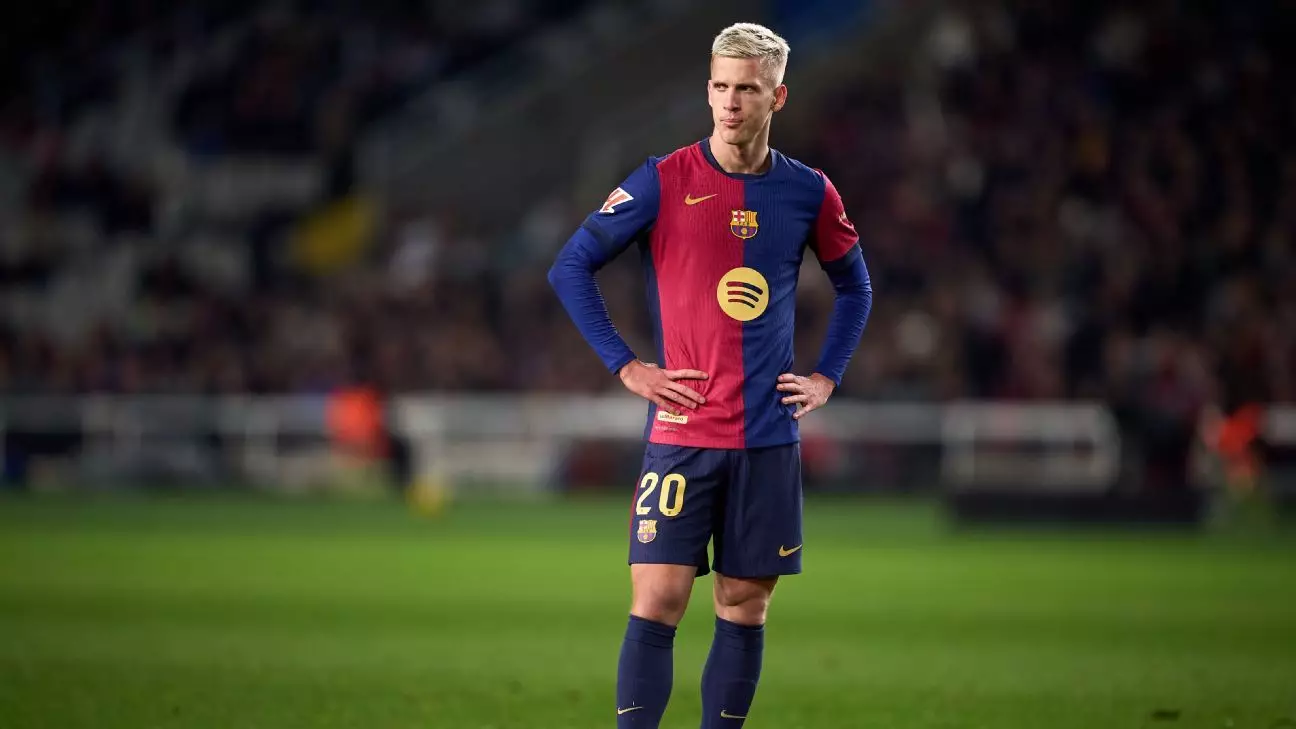In the fast-paced world of football, where player transfers and registrations can shape the fortunes of clubs, Barcelona finds itself facing a significant hurdle concerning Dani Olmo. The summer signing from RB Leipzig, acquired for a hefty €57 million, was initially granted temporary registration due to the long-term injury of teammate Andreas Christensen. However, a recent court ruling could render Olmo unavailable for the crucial second half of the season, presenting a myriad of implications for the Catalan club.
Barcelona’s attempts to extend Olmo’s provisional registration beyond the December 31 deadline were thwarted when a court rejected their lawsuit. This ruling is particularly surprising given the club’s previous victory when seeking similar registration rights for midfielder Gavi in 2023. The contrasting outcomes highlight the complexities of Spanish sports law and the unpredictable nature of legal proceedings in the realm of football.
Barcelona’s argument hinged on the assertion that denying Olmo’s registration would infringe upon workers’ rights, an argument that resonated with their earlier cases but evidently did not convince the court this time. LaLiga echoed the court’s sentiments, stating that the necessary conditions for extending the registration were not met, reinforcing their stance against clubs that exceed spending caps.
Barcelona’s precarious financial situation is at the heart of these registration challenges. With a fixed spending cap of €426 million for the current season, the club remains in violation of this limit, consequently facing severe restrictions that hinder their ability to register new players. This financial stranglehold stems from previous overspending, leading to increased scrutiny and tighter regulations imposed by LaLiga.
The club’s management is in a quagmire, scrambling to find ways to generate revenue that would allow them to comply with LaLiga’s stipulations. Despite recently securing a multi-year deal with kit supplier Nike, it’s apparent that even this lucrative contract may not suffice to facilitate Olmo’s registration. LaLiga’s framework only permits clubs to invest a fraction of incoming funds into player registration, a reality that emphasizes the sustainable approach Spanish football is attempting to implement.
In response to the unfavorable court ruling, Barcelona has started to explore alternative avenues to secure Olmo’s registration before the impending deadline. Two potential strategies have arisen: the presale of VIP seats at the redeveloped Spotify Camp Nou and seeking a personal guarantee from a board member. Such measures were previously employed to ensure the registrations of players like Jules Koundé and Joāo Félix.
This situation is further compounded by the fact that striker Pau Víctor, who was also signed from Girona last summer, finds himself in a similar predicament as Olmo. The possible ramifications are dire; should the registration fail, Olmo could potentially depart on a free transfer, a scenario that the club hopes to avert at all costs.
Despite the challenges, Barcelona president Joan Laporta maintains a level of optimism regarding the successful extension of Olmo and Víctor’s registrations. Laporta has reiterated that the club is not solely relying on the courts for a resolution; various pathways are being pursued to ensure compliance with LaLiga’s regulations. Still, the clock is ticking, and with the holiday season approaching, time is an enemy in this regard.
The cascading effects of this scenario extend beyond Olmo and potentially impact the club’s performance in the league. With Barcelona vying for supremacy both domestically and in European competitions, having a full-strength squad is imperative for their ambitions. As negotiations and legal maneuvers unfold, the future of Olmo remains uncertain, and the broader implications of financial mismanagement in football continue to reverberate throughout the industry.
Barcelona is at a crossroads, grappling with the dual pressures of legal and financial challenges. The impending end of Dani Olmo’s registration symbolizes a larger issue—how clubs navigate both player rights and financial sustainability in a fiercely competitive environment. This situation will undoubtedly test the resilience and ingenuity of Barcelona’s management as they strive to find a solution.

